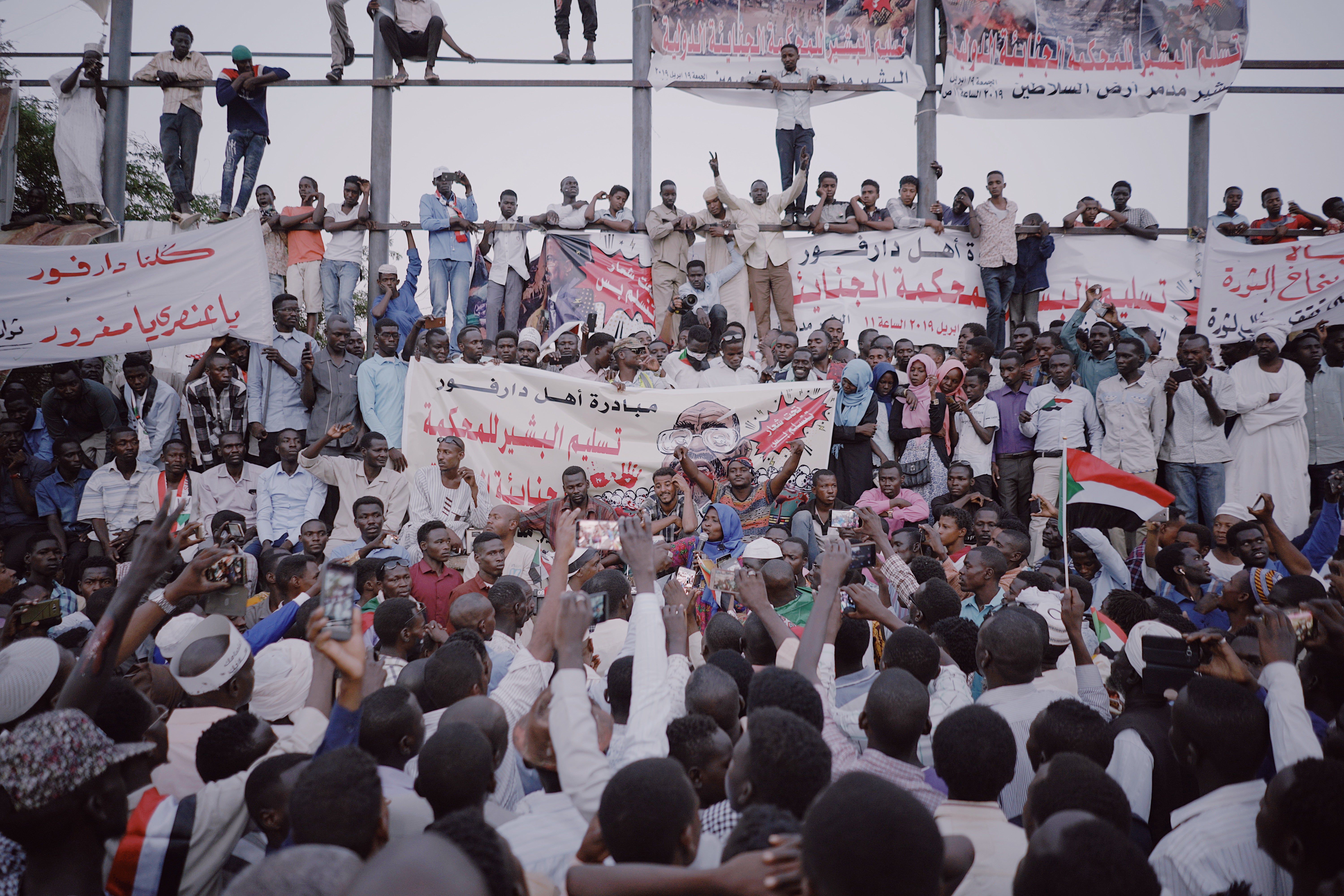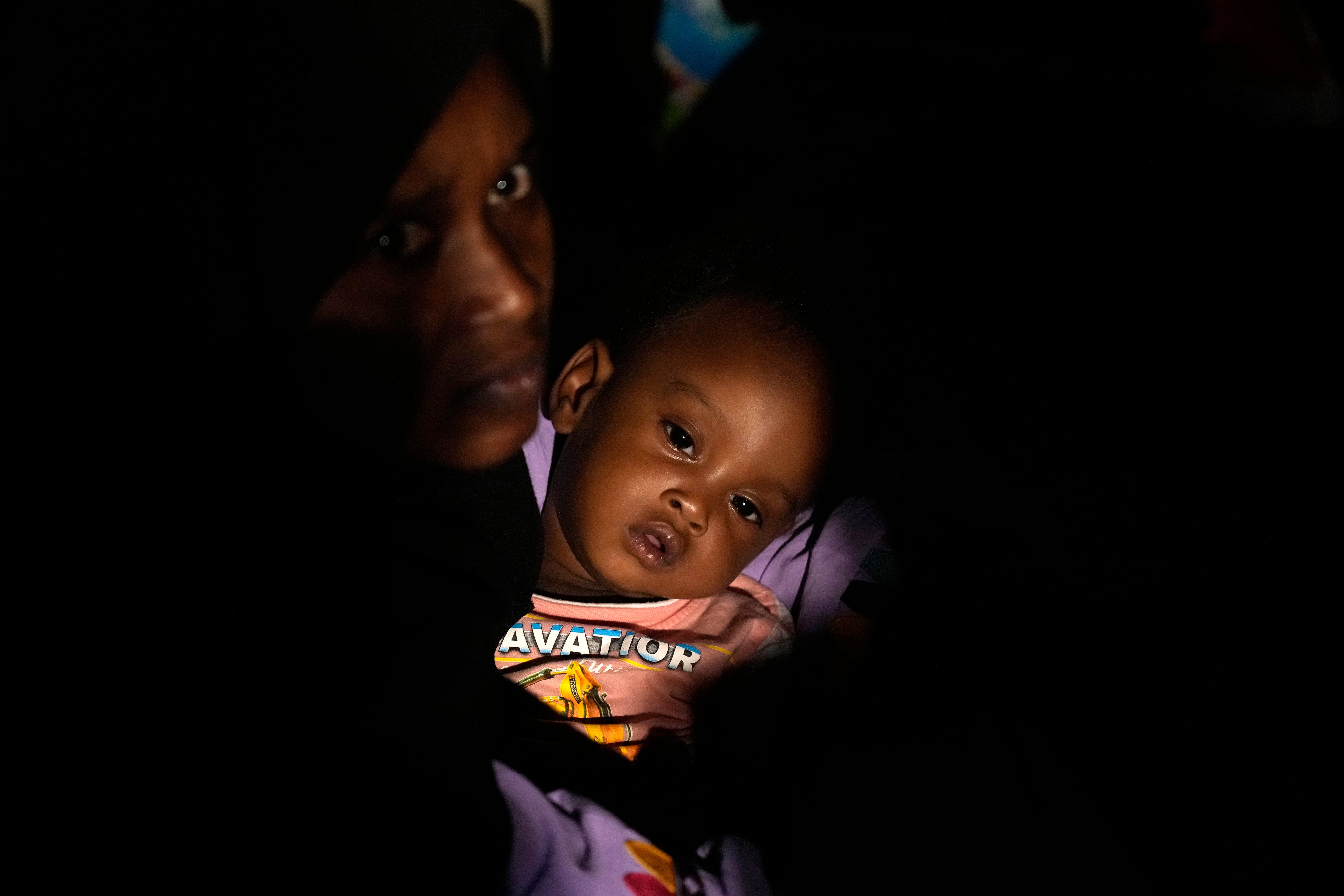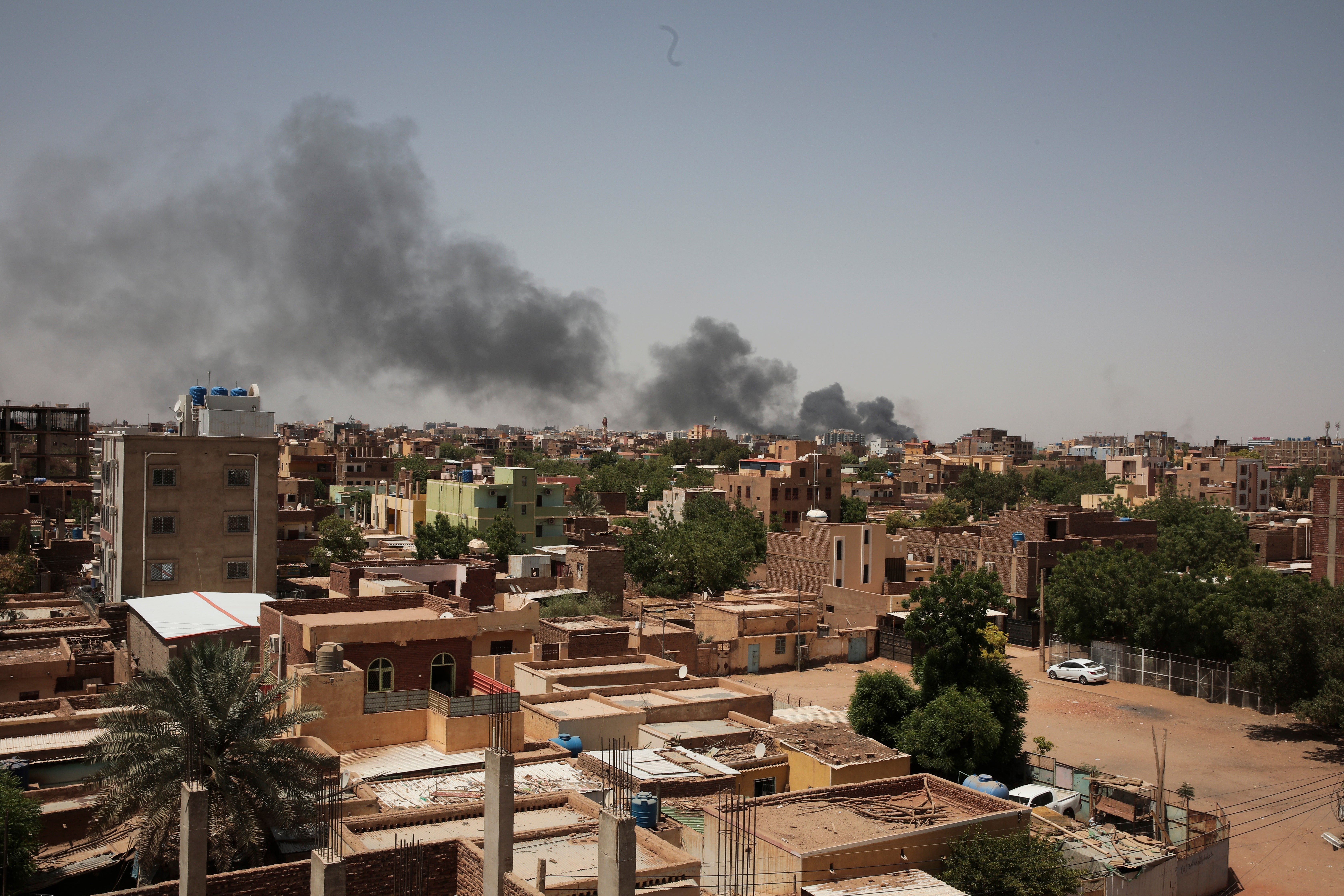How the democratic hopes of the Sudan Spring went so horribly wrong
It is still not clear which side fired the first shot on 14 April or who ordered it fired, write Katharine Houreld and Hafiz Haroun

In the heady days of 2019, after unarmed demonstrators in Sudan surrounded the army headquarters, chanting in defiance of an ageing despot, the country’s citizens dreamed of freedom. Sudan had suffered since its independence six decades earlier through long stretches of military rule interrupted only by brief spells of democracy.
But even amid the euphoria immediately after the overthrow of President Omar Hassan al-Bashir, who had terrorised the country for 30 years, the seeds of today’s conflict already had been sown.
Since the latest fighting exploded on 14 April, Sudan’s citizens have been trying to identify the juncture at which their nation turned off the democratic path and headed down the road to a withering conflict between two generals battling for power. The fighting has killed at least 500 civilians – and probably far more – while sparking an exodus of tens of thousands of refugees, crippling aid operations that fed millions and threatening to set alight one of the world’s most unstable regions.
Some say the roots of today’s conflict can be traced back to Bashir, who fostered rival paramilitary units and armed groups to head off potential challengers in a nation that has experienced a string of coups and attempted coups.
For others, the cause was fatal flaws in the structure of the hybrid civilian-military government set up with international backing after Bashir was deposed. This arrangement concentrated power in the hands of the men with guns.

Still others point to the failure of the United States and other foreign powers to sanction the two generals when they jointly overthrew that hybrid government in 2021. Instead, foreign governments tried to coax the rival generals toward democratic reforms.
Ultimately, it boils down to one question: How do you get the men with money and guns to give up their weapons?
Sudan’s armed forces never really relinquished power during the country’s democratic uprising, even as Sudan’s peaceful revolution was capturing the imagination of many abroad. When Bashir was ousted on the night of 10 April 2019, his own officers arrested him. The army was still in charge. His intelligence chief already had been holding secret meetings with opposition supporters in a top-security prison to court civilian support, Reuters later reported.
In the days that followed, a deal was hammered out. The military, headed by General Abdel Fattah al-Burhan, would form a sovereignty council government with civilian representatives. Mohammed Hamdan Dagalo – universally known as Hemedti and head of the powerful paramilitary Rapid Support Forces (RSF) – also was a key player. Abdalla Hamdok, a civilian, was appointed prime minister but had little real power under the new, internationally backed transitional constitution.
After the transitional constitution was signed, it was always clear the military were going to keep power
“The writing was always on the wall,” Hamdok recounted. “Revolutions come in cycles, and 2019 was the high.”
Justin Lynch, a co-author of the book Sudan’s Unfinished Democracy, said there were obstacles to civilian rule from the beginning. “If the international community did everything right, it’s still not clear that the revolution would have succeeded,” he says. “After the transitional constitution was signed, it was always clear the military were going to keep power.”
The military and the RSF kept all the guns. Their business interests, including chunks of state-owned companies and private enterprises, gold mines and petroleum operations, remained untouched.
But Hamdok had an ace up his sleeve. With Sudan facing skyrocketing inflation and about $60bn (£47.5bn) of debt, he was a liberal economist with whom international financial institutions could do business. When South Sudan seceded in 2011 after decades of civil war, Sudan lost about 75 per cent of its oil production, 66 per cent of exports and half of the government’s revenue. Bashir’s government began printing money to pay for fuel and bread subsidies. People’s anger grew along with the price of bread.
Hamdok had hoped he could deliver relief, cementing his place at the table, if international lenders released financial assistance quickly enough. But his government had to navigate a gauntlet of reforms before funds would flow. It had to design and negotiate a reform package, demonstrate progress on reforming exchange rates and fuel subsidies, and clear the country’s arrears with major creditors. Sudan also was eager for the United States to drop its designation of the country as a sponsor of terrorism, a circumstance that dated to the Bashir era.

“One can speculate that had those things happened faster ... it would have been much easier to maintain support,” says Magdi M Amin, a former adviser to Sudan’s ministry of finance.
But those delays were not the chief problem, he added. The main problem arose when civilian investigators started probing the extensive business interests of the RSF and the military. Suddenly, the danger that civilian government represented to the men with guns outweighed the potential benefits.
Former finance minister Ibrahim al-Badawi says the June 2021 deal he negotiated with a consortium led by the International Monetary Fund laying out conditions for debt relief was a direct threat to the generals and their allies. Companies producing weapons and ammunition were to be audited, he says, and the business interests of the security forces examined.
The generals “are very careful observers”, he says. “The most significant clause in that agreement was anti-corruption and closer oversight of the ministry of finance.”
Because Hemedti had very cleverly aligned himself with Sudan’s democrats, the international community was not listening to any of the naysayers
After the generals jointly ousted the hybrid government in October 2021, Hamdok tried to salvage its achievements by negotiating a return to civilian rule. But he resigned three months later, saying the military had no intention of sharing power. Meanwhile, the generals jailed the members of the anti-corruption committee and began systematically to reverse its work.
International debt relief and budgetary support was immediately suspended. But neither Hemedti nor Burhan faced targeted sanctions from Washington or other foreign capitals, even after security forces mowed down young demonstrators protesting what they called the theft of their revolution.
Instead, diplomats from the “Quad” of countries – the United States, Britain, Saudi Arabia and the United Arab Emirates – tried to persuade the two generals to agree to a power-sharing arrangement that diplomats hoped would pave a way to democracy. The African Union, United Nations mission and a regional trade bloc known as the Intergovernmental Authority on Development also backed the talks.

“There was no accountability for the coup of 2021. We didn’t see any sanctions. We didn’t even see the state department calling it a coup. The US sort of set the tone for the response,” says Kholood Khair, the founding director of the Khartoum-based think tank Confluence Advisory. “There was no support for protesters, some of them wrongfully accused of capital crimes ... It was inconvenient for the narrative of the generals as reformers.”
The generals also got a lift from regional powers. Gold from mines owned by Hemedti’s family members flowed to markets in the UAE, where he maintained access to extensive business interests. Burhan enjoyed support from Egypt’s military-backed government.
Diplomats from the Quad helped to midwife a draft deal in December that was meant to lead to a civilian government and benefited the RSF far more than the military, thus increasing pressure on Burhan to reject the deal, Khair says.
“Because Hemedti had very cleverly aligned himself with Sudan’s democrats, the international community was not listening to any of the naysayers. They were wedded to this political process at all costs,” Khair says. But he added: “The central conflict between the generals was always obvious.”
Tensions grew over the draft deal, which was to be finalised in April, with differences arising over accountability for civilian deaths, corruption and, most of all, a timeline for integrating the RSF into the military and for power-sharing between the two forces. Hemedti wanted to keep his forces separate for another decade, thus maintaining his power base and retaining a status equal to that of Burhan, the de facto head of state. The military wanted the RSF integrated within two years.
Army leaders always had been uneasy about the RSF, which Bashir set up in 2013 to function as a frontline force in the war in the Darfur region. The RSF was drawn from local Arab militias known as the Janjaweed – “devils on horseback” – who were unleashed against the ethnic groups of African rebels who had challenged exploitation by the elite in Khartoum. The conflict killed about 300,000 people and eventually led the International Criminal Court to indict Bashir on charges of war crimes and genocide. The army generals feared that the RSF, with its independent command structure and financing, was growing into a rival for power.
Even into April, negotiations between the RSF and the armed forces continued over the power-sharing agreement, along with civilian representation and support from Western and Middle Eastern diplomats, according to former justice minister Nasredeen Abdulbari, who was leading efforts to draft a new transitional constitution. He said discussions between representatives of the two sides were still underway just hours before fighting broke out.
At the same time, both sides had been building up their forces in strategic locations. Air force planes from Egypt, which had close ties to Burhan, had arrived at the Merowe airfield north of Khartoum. The RSF had sent troops there and also moved many fighters and vehicles into the capital city.
It is still not clear which side fired the first shot on 14 April or who ordered it fired. If it was the army, it is not clear whether it was Burhan’s men or a rogue faction – Islamist officers loyal to the former president, Bashir – who pulled the trigger.
But within hours, full-scale battles involving airstrikes and artillery bombardment had erupted in cities across the country.
Many of Sudan’s pro-democracy activists say the latest fighting is not the end of their struggle. “The people do not trust either of these men. The revolution is not yet over,” says Elfatih Adam, an economics graduate and activist from Darfur. “This war is just one more stop on the way.”
© The Washington Post






Join our commenting forum
Join thought-provoking conversations, follow other Independent readers and see their replies
Comments